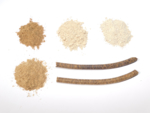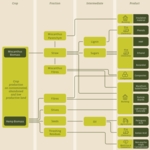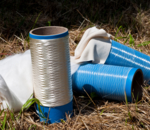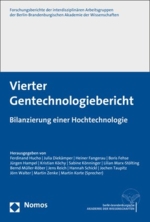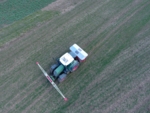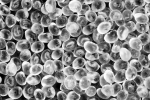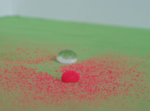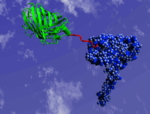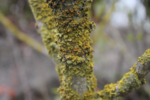-
-
Biogas and wood as components of the energy transition - 10/02/2020
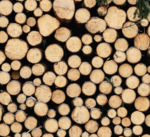
Decentralised, controllable and stable - renewable energy is an important component in the transition to a bioeconomy without fossil fuels. BIOPRO spoke to PD Dr. Andreas Lemmer from the State Institute of Agricultural Engineering and Bioenergy at the University of Hohenheim and Prof. Dr. Stefan Pelz, scientific director of the Institute for Applied Research and professorat the University of Applied Forest Sciences Rottenburg.
https://www.biooekonomie-bw.de/en/articles/news/New-perspectives-for-bioenergy
-
Producing valuable new products from waste materials - 07/01/2020
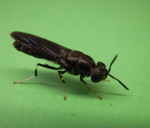
Eco-friendly and responsibly manufactured products are more in demand than ever before. Specific research is being carried out into materials and applications for a wide variety of uses. The Fraunhofer Institute for Interfacial Engineering and Biotechnology IGB is working with Hermetia Baruth GmbH on the vision of an insect biofactory that uses waste materials to produce a wide range of products such as biosurfactants, animal feed or foils.
https://www.biooekonomie-bw.de/en/articles/news/A-vision-insect-biorefineries-as-components-of-a-sustainable-bioeconomy
-
EIP-AGRI project coordination - 12/12/2019
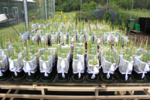
Lentil plants, rarely cultivated in Central Europe in the twentieth century, are making a comeback. The "Rhizo-Linse"1 EIP-AGRI project aims to reintroduce old lentil varieties and make them appealing to farmers. A company called nadicom Gesellschaft für angewandte Mikrobiologie mbH is working on the development of an ecological product consisting of nodule bacteria that can improve lentil plant growth.
https://www.biooekonomie-bw.de/en/articles/news/nadicom-Rhizo-Linse-project-excellent-small-fertiliser-factories
-
CRISPR/Cas9 and genetic engineering laws - 27/11/2019
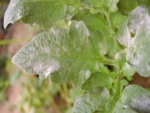
Plant geneticists from Tübingen have used genome deletion to breed a variety of tomato that is resistant to powdery mildew. The CRISPR/Cas9 technology that they used enabled them to achieve this in a relatively short period of time. They also demonstrated beyond any doubt that the new tomato variety contains no foreign DNA and is indistinguishable from naturally occurring deletion mutants.
https://www.biooekonomie-bw.de/en/articles/news/transgene-free-plant-breeding-using-genome-editing
-
Article - 21/10/2019
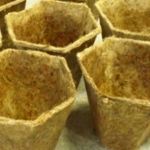
Plastic plant pots are not good for the environment; strictly speaking, they should not even be disposed of in recycling bins. Alternatives such as coconut fibre pots are compostable, but not pollutant-free and not "bio" at all. The Karlsruhe-based company Fiber Engineering has developed a truly ecofriendly way to grow plants: pots made of hemp or grass, which are preserved with biological components and decompose completely within a…
https://www.biooekonomie-bw.de/en/articles/news/pflanztoepfe-aus-naturfasern-bio-ohne-wenn-und-aber
-
Two-part interview part 2 | Prof. Dr. Ortwin Renn on the green genetic engineering debate - 26/08/2019
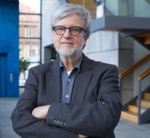
Many scientists are expecting revolutionary advances in research to come from new molecular biology tools such as the CRISPR/Cas gene scissors. These methods are very important for agriculture, especially plant breeding and nutrition. However, the debate on green genetic engineering 2.0 looks like it may once again be heading for ideological battles. We talked with Prof. Dr. Ortwin Renn and asked him about opportunities for better communication.
https://www.biooekonomie-bw.de/en/renn-green-genetic-engineering
-
-
-
-
Dossier - 15/04/2019

Plastic waste takes years to decompose and pollutes the environment. Nevertheless, plastics are an indispensable part of everyday life. It is therefore all the more important to find a meaningful alternative that is sustainable, environmentally friendly and has better properties and more functionality than conventional plastics. In addition, such an alternative should not be dependent in any way on fossil resources.
https://www.biooekonomie-bw.de/en/articles/dossiers/the-alternative-bioplastics
-
Article - 02/04/2019
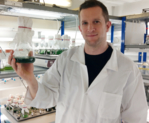
For many decades, glyphosate has been a common component of agricultural pesticides worldwide, although it is a controversial herbicide that may be harmful. The good news is that a more sustainable alternative is now in sight: researchers from the University of Tübingen have discovered a sugar molecule called 7-deoxy-sedoheptulose (7dSh) which inhibits the growth of plants and microorganisms, but appears to be completely harmless to human cells.
https://www.biooekonomie-bw.de/en/articles/news/simple-sugar-could-soon-compete-with-glyphosate
-
Article - 27/03/2019
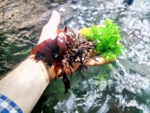
Algae are frugal organisms. They require only light, water, minerals and carbon dioxide to be able to produce biomass. These properties will now be exploited economically in a two-year research project. Dr. Stefan Sebök from the University of Hamburg plans to study the holistic utilisation of degradation products of a biogas plant in Wallerstädten by linking them to land-based algae cultivation.
https://www.biooekonomie-bw.de/en/articles/news/residues-from-biogas-plants-as-feed-for-algae
-
-
-
-
-
-
-
Dossier - 20/03/2017
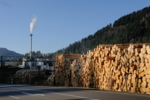
Petroleum is the raw material for basic chemicals. Growing demand and dwindling resources mean that the chemical industry is increasingly focusing on renewable resources. Lignin is a wood component that is proving to be a promising resource. It is currently almost exclusively used for generating energy, although it could also be used for other purposes. In Baden-Württemberg, a research consortium is specifically focused on exploring its…
https://www.biooekonomie-bw.de/en/articles/dossiers/lignin-a-natural-resource-with-huge-potential
-
-
-
-
Dossier - 16/06/2014
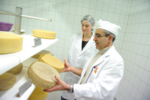
Biotechnology opens up numerous opportunities for the food industry. The targeted use of biotechnological methods can help reduce the quantity and number of unhealthy ingredients in foods as well as degrade allergenic substances. Genomic research and targeted breeding also greatly facilitate progress in agriculture. Food biotechnology therefore contributes significantly to saving resources, optimising harvest yields and producing better foods.
https://www.biooekonomie-bw.de/en/articles/dossiers/biotechnology-as-a-tool-for-the-production-of-food
-
Dossier - 16/12/2013
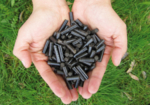
While the use of biotechnological methods for the purification of water, soil and air has already been state of the art for quite a few years, the use of microorganisms for the recovery of metal and mineral raw materials from industrial and agricultural waste has also started to attract the interest of scientists. This dossier addresses this topic, explains what geobiotechnology and urban mining are all about.
https://www.biooekonomie-bw.de/en/articles/dossiers/microbial-raw-material-recycling
-
-
-
Dossier - 23/09/2013
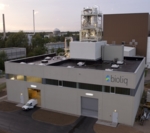
On the one hand, a bioeconomy relies on renewable resources to meet society’s need for food, energy and industrial products. On the other, it emphasises the role of biogenic material flows. The bioeconomy model is expected to reduce our dependency on fossil fuels in the long term. In order to implement the shift to a biobased economy on the regional level, the Baden-Württemberg government launched the Bioeconomy Research Strategy in summer 2013.
https://www.biooekonomie-bw.de/en/articles/dossiers/bioeconomy-a-new-model-for-industry-and-the-economy
-
Dossier - 25/03/2013
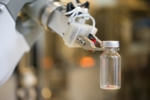
Processes that previously required pipetting analysis and production to be carried out manually are increasingly now controlled by automated systems. However this has not necessarily involved a complete reinvention of the wheel instead automation systems used in the plant construction and mechanical engineering sectors are being adapted and optimised for application in the life sciences.
https://www.biooekonomie-bw.de/en/articles/dossiers/biotechnology-goes-automated
-
Dossier - 22/10/2012
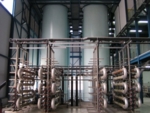
Biotechnologists are increasingly learning how to apply the knowledge about biological metabolic processes in the field of environmental protection including waste management and environmental rehabilitation. Environmental biotechnology is a field with great potential. In future bacteria and other microorganisms will most likely also contribute to sustainability and cost efficiency in other areas including the cosmetics and detergent industry as…
https://www.biooekonomie-bw.de/en/articles/dossiers/environmental-biotechnology
-
-
Dossier - 23/07/2012
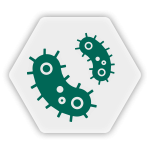
Extremophilic bacteria love it hot, sour or salty, toxic substances like heavy metals also do them good and even give them energy. As molecular and systems biology techniques get better and better, industry is also becoming increasingly interested in these exotic organisms. What potential does knowing the biochemistry of extremophilic bacteria have for the pharmaceutical, cosmetics and sanitary articles industries?
https://www.biooekonomie-bw.de/en/articles/dossiers/extremophilic-bacteria
-
Dossier - 14/05/2012
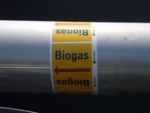
In addition to sunlight water and wind biogas is a regenerative source of energy that contributes to saving fossil resources. Germany is home to around 7100 biogas plants including 796 as of 2011 in Baden-Württemberg. In 2010 these facilities produced 11 per cent of the electricity generated from renewables in Germany. Energy-rich methane is the major constituent of biogas and is produced when organic compounds are broken down by bacteria in the…
https://www.biooekonomie-bw.de/en/articles/dossiers/biogas-a-promising-source-of-renewable-energy
-
Website address: https://www.biooekonomie-bw.de/en/search







